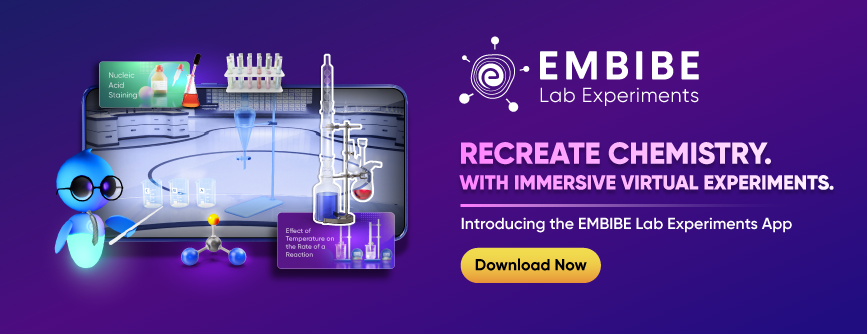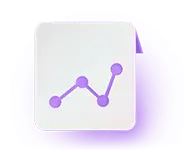- Written by Saif_Ansari
- Last Modified on 18-03-2024
West Bengal Board Class 11 2024
The West Bengal Council of Higher Secondary Education (WBCHSE) is the statutory body responsible for supervising, regulating and developing secondary education in the state of West Bengal, India. The board is also responsible for conducting the West Bengal Board Class 11 exam.
The West Bengal Board Class 11 Exam is a mandatory examination for students of Class 11 who wish to continue their studies in Class 12. The examination is conducted at the end of the academic year, typically in March-April. Continue reading to get more details on the Class 11 West Bengal Board exam.
West Bengal Board Class 11 Summary
WBCHSE releases the WB Class 11 exam schedule 2024 on the official website. The examinations will tentatively begin in March-April 2024. The West Bengal Higher Secondary Board exam consists of two parts, i.e. Class XI and Class XII.
- Two language subjects: one from Group ‘A’ and Group ‘B’.
- Three compulsory, elective subjects: one to be chosen from any group.
- One optional elective subject is to be chosen from the groups remaining after the selection of compulsory elective subjects.
- The total duration of the exam will be 3 hours and 15 minutes.
The Higher Secondary course consists of three major streams: Science, Commerce and Arts. The two language subjects chosen by the students are the same for students of all three streams.
| First Language Choice (Common for Science, Commerce and Arts Students) (Group A) |
| Bengali or Hindi or Nepali or Urdu or Santali or Odia or Telugu or Gujarati or Punjabi or English |
Most of the Bengali speaking choose Bengali as their First Language Subject |
| Second Language Choice (Common for Science, Commerce and Arts Students) (Group B) |
| Bengali or Hindi or Alternative English or Nepali or English |
Most of the Bengali speaking choose English as their Second Language Subject |
| Three Compulsory Elective Subjects & One Additional Elective subject |
| Students have to select three Compulsory Elective Subjects & One Additional Elective subject from any one of the following sets of subjects; i.e., the choice must be confined to any one of the following sets of subjects. |
Set-I
(Students who want to study the Science stream choose a subject combination from this set of subjects) |
Physics or Nutrition, |
| Chemistry or Economics |
| Mathematics or Psychology or Anthropology or Agronomy |
| Biological-Science |
| Statistics or Geography |
| Computer Science or Computer Application or Environment Studies |
Set-II
(Students who want to study the Commerce stream choose a subject combination from this set of subjects) |
Accountancy Business Studies |
| Commercial Law and Preliminaries of Auditing |
| Costing and Taxation |
| Economics |
| Computer Application or Environment Studies or Health & Physical Education Mathematics |
Set-III
(Students who want to study the Arts stream choose a subject combination from this set of subjects) |
Political Science |
| Education or Nutrition |
| Journalism & Mass Communication or Economics or Sanskrit or Persian or Philosophy or Sociology |
| History or Anthropology or Psychology or Mathematics or Agronomy Geography or Home Management & Family Resource Management |
| Music or Visual Arts or Performing Arts or Health & Physical Education or Environment Studies or Computer Applications |
WB Class 11 Exam Routine (Tentative)
Here is the tentative West Bengal Class 11 exam timetable:
| Exam |
Date |
Time |
| Bengali (A), English (A), Hindi (A), Nepali (A), Urdu (A), Santhali, Odia, Telugu, Gujarati, Punjabi |
02-04-2024 |
2:00 PM – 5:15 PM |
| English (B), Bengali (B), Hindi (B), Nepali (B), Alternative English |
04-04-2024 |
2:00 PM – 5:15 PM |
| #Health Care, #Automobile, #Organised Retailing, #Security, #IT & ITES – VOCATIONAL SUBJECTS |
05-04-2024 |
2:00 PM – 5:15 PM |
| Biological Science, Business Studies, Political Science |
06-04-2024 |
2:00 PM – 5:15 PM |
| Mathematics, Psychology, Anthropology, Agronomy, History |
08-04-2024 |
2:00 PM – 5:15 PM |
| Computer Science, Modern Computer Application, Enviromental Studies, #Health & Physical Education, #Music, #Visual Arts |
09-04-2024 |
2:00 PM – 5:15 PM |
| Physics, Nutrition, Education, Accountancy |
11-04-2024 |
2:00 PM – 5:15 PM |
| Commercial Law and Preliminaries of Auditing, Philosophy, Sociology |
13-04-2024 |
2:00 PM – 5:00 PM |
| Chemistry, Journalism & Mass Communication, Sanskrit, Persian, Arabic French |
16-04-2024 |
2:00 PM – 5:15 PM |
| Statistics, Geography, Costing and Taxation, Home Managament & Family Resource Management |
18-04-2024 |
2:00 PM – 5:15 PM |
| Economics |
20-04-2024 |
2:00 PM – 5:15 PM |
Official Website Link
https://wbchse.nic.in/html/index.html
West Bengal Board Class 11 Exam Pattern
Before appearing for any exams, students must always go through the exam pattern. This helps students understand the mark distribution, mark weightage etc. Students taking the exam for Class 11 (first year of Intermediate) can find the detailed exam pattern, including the scoring pattern (Marking) below:
West Bengal Board Class 11 Science Exam Pattern
Students must note that the marks obtained in the optional elective subject are not added to the total marks. Check the exam pattern for Science subjects as below:
| Subjects |
Full Marks |
Pass Marks |
| Theory |
Practical / Oral / Projects |
Theory |
Practical / Oral / Projects |
| Compulsory Language |
| Bengali A |
80 |
20 |
24 |
6 |
| English B |
80 |
20 |
24 |
6 |
| Compulsory Elective |
| Physics |
70 |
30 |
21 |
9 |
| Chemistry |
70 |
30 |
21 |
9 |
| Mathematics |
80 |
20 |
24 |
6 |
| Optional Elective |
| Biology |
70 |
30 |
21 |
9 |
| |
|
|
|
|
| Total Marks for the Exam |
500 |
West Bengal Board Class 11 Commerce Subjects Exam Pattern
Check the exam scheme for the Commerce subjects below:
| Subjects |
Full Marks |
Pass Marks |
| Theory |
Practical / Oral / Projects |
Theory |
Practical / Oral / Projects |
| Compulsory Language |
| Bengali A |
80 |
20 |
24 |
6 |
| English B |
80 |
20 |
24 |
6 |
| Compulsory Elective |
| Accountancy |
80 |
20 |
24 |
6 |
| Business Studies |
80 |
20 |
24 |
6 |
| Economics |
80 |
20 |
24 |
6 |
| Optional Elective |
| Commercial Law and Preliminaries of Auditing |
80 |
20 |
24 |
6 |
| |
|
|
|
|
| Total Marks for the Exam |
500 |
West Bengal Board Class 11 Arts Subjects Exam Pattern
Check the exam pattern for Arts subjects in the following table:
| Subjects |
Full Marks |
Pass Marks |
| Theory |
Practical / Oral / Projects |
Theory |
Practical / Oral / Projects |
| Compulsory Language |
| Bengali A |
80 |
20 |
24 |
6 |
| English B |
80 |
20 |
24 |
6 |
| Compulsory Elective |
| Education |
70 |
30 |
21 |
9 |
| History |
70 |
30 |
21 |
9 |
| Geography |
80 |
20 |
24 |
6 |
| Optional Elective |
| Economics |
70 |
30 |
21 |
9 |
| |
|
|
|
|
| Total Marks for the Exam |
500 |
Marks obtained in the optional elective subject are not added to the total.
Subject-wise marks and grades are shown in the Marksheet. The classification of the subject-wise and overall grades is given below:
| Mark |
Grade |
Details |
| 90 – 100 |
O |
Outstanding |
| 80 – 89 |
A+ |
Excellent |
| 70 – 79 |
A |
Very Good |
| 60 – 69 |
B+ |
Good |
| 50-59 |
B |
Satisfactory |
| 40 – 49 |
C |
Fair |
| 30 – 39 |
P |
Pass |
| Below 30 |
F |
Failed |
- Subject Grade is awarded based on total marks secured by a candidate in theoretical and practical/ project/oral taken together.
- N.A. (Not Applicable) is shown against Subject Grade when a candidate is absent or does not obtain minimum pass marks in either theoretical or practical/ project/oral.
- A candidate, to be declared pass, must secure pass marks in two compulsory languages and three elective subjects.
- Grand total is calculated by taking into account the highest marks obtained in five subjects, including Language Group and Optional Elective subject, if any, where minimum pass marks in each language of Language Group should be secured mandatorily and accordingly a mark sheet is printed. The overall grade is calculated by dividing the grand total by five.
- Regulation 9(1)/9(2b) will be applicable to the cases where necessary.
- 9(1): If a candidate fails to obtain minimum pass marks in any compulsory subject except Environmental Education for the reasons of deficiency of less than five per cent of full marks, he/she shall make up the deficiency in the compulsory subject, be given credit by transfer of marks from the highest marks obtained by him/her in a compulsory subject except Environmental Education.
- 9(2b): Failure in obtaining the minimum pass marks in a compulsory elective subject, but having obtained the minimum pass marks in the optional elective subject, shall be declared passed by giving him/her the benefit of interchanging the compulsory elective subject as the optional elective subject and vice versa.
- Application for declining the benefit of interchange of subjects shall not be accepted on expiry of 30 days from the date of publication of result.
West Bengal Board Class 11 Syllabus
The WBCHSE provides quality education to the students of West Bengal and it also conducts the secondary examinations for Class 10 and Class 12 students. The board has prescribed the West Bengal Board Class 11 Syllabus for the students of Class 11. The syllabus is designed in such a way that it covers all the important topics and concepts that are to be taught in Class 11. We have provided the WBBSE Class 11 Syllabus for all subjects below:
Class 11 West Bengal Board Physics Syllabus
Physics is an important subject and requires students to study hard in order to score good marks. To score well, students must go through the exam syllabus thoroughly and based on that start their exam preparation. This will help students to have a well-planned exam preparation. Scroll down to access the Class 11 west Bengal board Physics syllabus:
| Unit |
Chapters |
| I |
Physical World & Measurement |
| II |
Kinematics |
| III |
Laws of motion |
| IV |
Work, energy and Power |
| V |
Motion of System of Particles and Rigid body |
| VI |
Gravitation |
| VII |
Properties of Bulk Matter |
| VIII |
Thermodynamics |
| IX |
Behaviour of Perfect Gas and Kinetic Theory |
| X |
Oscillation and waves |
Class 11 West Bengal Board Chemistry Syllabus
To score well in the West Bengal Board Class 11 Chemistry exam, students must go through the syllabus and study based on the syllabus. This will help students to prepare for the chapters that are coming in the exams. Students can refer to the table below for WB Board Class 11 Chemistry syllabus:
| Unit |
Chapters |
| I |
Some Basic Concepts of Chemistry |
| II |
Structure of Atom |
| III |
Classification of Elements and Periodicity in Properties |
| IV |
Chemical bonding and Molecular Structure |
| V |
State of Matter; Gases and Liquids |
| VI |
Thermodynamics |
| VII |
Equilibrium |
| VIII |
Redox Reactions |
| IX |
Hydrogen |
| X |
s-Block Elements |
| XI |
Some p-Block Elements |
| XII |
Organic Chemistry: Some Basic Principles and Techniques |
| XIII |
Hydrocarbons |
| XIV |
Environmental Chemistry |
Note: Units VII and XIII were deleted in the academic year 2022.
Class 11 West Bengal Board Maths Syllabus
Maths is one of the most important and scoring subjects in Class 11 and students must study thoroughly to score well. To do so, students must go through the syllabus properly and based on the syllabus prepare further. For further reference, we have provided the West Bengal Board Class 11 Maths syllabus below:
| Unit |
Chapters |
| I |
Sets And Functions |
| II |
Algebra |
| III |
Coordinate Geometry |
| IV |
Calculus |
| V |
Mathematical Reasoning |
| VI |
Statistics And Probability |
Class 11 West Bengal Board Biology Syllabus
To score well in the Class 11 West Bengal Board Biology exam, students are advised to go through the syllabus properly and prepare accordingly. Given below is the West Bengal Board Class 11 Biology syllabus that students can refer to:
| Unit |
Chapters |
| I |
Diversity Of Living Organisms |
| II |
Structural Organisation of Plants |
| III |
Cell: Structure & Function |
| IV |
Plant Physiology |
| V |
Human Physiology |
West Bengal Board Class 11 Exam Blueprint
For overall exam preparation, students need to analyse the exam before starting with their preparation. To do so, the most important step is to have an exam blueprint. An exam blueprint will help students understand the exam pattern and the bifurcation of marks among chapters. This will help students to have a strategic preparation without any hassle. The exam blueprint or chapter-wise mark/ weightage of different key subjects are given below:
West Bengal Board Class 11 Physics Blueprint
Given below is the West Bengal Board Class 11 Physics blueprint for students’ reference:
| Unit |
Chapters |
Marks |
| I |
Physical World & Measurement |
2 |
| II |
Kinematics |
10 |
| III |
Laws of Motion |
10 |
| IV |
Work, energy & Power |
5 |
| V |
Motion of System of Particles & Rigid Body |
6 |
| VI |
Gravitation |
7 |
| VII |
Properties of Bulk Matter |
10 |
| VIII |
Thermodynamics |
5 |
| IX |
The behaviour of Perfect Gas & Kinetic theory of Gases |
5 |
| X |
Oscillations & Waves |
10 |
| Total Marks |
70 |
West Bengal Board Class 11 Chemistry Blueprint
Given below is the West Bengal Board Class 11 Chemistry blueprint for students’ reference:
| Unit |
Chapters |
Marks |
| I |
Some Basic Concepts of Chemistry |
3 |
| II |
Structure of Atom |
6 |
| III |
Classification of Elements and Periodicity in Properties |
4 |
| IV |
Chemical bonding and Molecular Structure |
5 |
| V |
State of Matter; Gases and Liquids |
4 |
| VI |
Thermodynamics |
6 |
| VII |
Equilibrium |
6 |
| VIII |
Redox Reactions |
3 |
| IX |
Hydrogen |
3 |
| X |
s-Block Elements |
5 |
| XI |
Some p-Block Elements |
7 |
| XII |
Organic Chemistry: Some Basic Principles and Techniques |
7 |
| XIII |
Hydrocarbons |
8 |
| XIV |
Environmental Chemistry |
3 |
| Total Marks |
70 |
West Bengal Board Class 11 Mathematics Blueprint
Given below is the West Bengal Board Class 11 Mathematics blueprint for students’ reference:
| Unit |
Chapters |
Marks |
| I |
Sets And Functions |
18 |
| II |
Algebra |
25 |
| III |
Coordinate Geometry |
17 |
| IV |
Calculus |
4 |
| V |
Mathematical Reasoning |
8 |
| VI |
Statistics And Probability |
4 |
| Total Marks |
80 |
20 marks in Mathematics are evaluated based on the performance of a mathematical project given to each student.
West Bengal Board Class 11 Biology Blueprint
Given below is the West Bengal Board Class 11 Biology blueprint for students’ reference:
| Unit |
Chapters |
Marks |
| I |
Diversity Of Living Organisms |
8 |
| II |
Structural Organization Of Plants |
17 |
| III |
Cell: Structure & Function |
15 |
| IV |
Plant Physiology |
15 |
| V |
Human Physiology |
15 |
| Total Marks |
70 |
Practical/Experiments List & Model Writeup
Practical/ Experiment lists for different key subjects are given below:
| Two Experiments One From Each Section |
8+8=16 |
| Practical record of experiments |
4 |
| Project with viva |
5 |
| Viva on experiment |
5 |
| Total Marks |
30 |
List of Experiments for Physics
| One Experiment To Be Chosen From Each Section |
| Section A |
To measure the internal diameter and depth of a given beaker using Vernier Callipers and find its volume. |
| To measure the volume of an irregular lamina using a screw gauge. |
To determine the radius of curvature of a given spherical surface by a spherometer.
Using a simple pendulum plot L-T2 graphs. Hence, find the effective length of a second pendulum using a graph. |
To determine the radius of curvature of a given spherical surface by a spherometer.
Using a simple pendulum plot L-T2 graphs. Hence, find the effective length of a second pendulum using a graph. |
| Section -B |
To find the force constant of a helical spring by plotting a graph between load and Extension. |
| To determine the surface tension of water by capillary rise method. |
| To find the speed of sound in air at room temperature using a resonance tube by two resonance positions. |
To study the variation in volume with pressure for a sample of air at constant temperature by plotting graphs between P and V
0r
To study the relationship between the temperature of a hot body and time by plotting a cooling curve. |
| One Experiment To Be Chosen From Each Section |
| Section A |
To measure the internal diameter and depth of a given beaker using Vernier Callipers and find its volume. |
| To measure the volume of an irregular lamina using a screw gauge. |
To determine the radius of curvature of a given spherical surface by a spherometer.
Using a simple pendulum plot L-T2 graphs. Hence, find the effective length of a second pendulum using a graph. |
To determine the radius of curvature of a given spherical surface by a spherometer.
Using a simple pendulum plot L-T2 graphs. Hence, find the effective length of a second pendulum using a graph. |
| Section -B |
To find the force constant of a helical spring by plotting a graph between load and Extension. |
| To determine the surface tension of water by capillary rise method. |
| To find the speed of sound in air at room temperature using a resonance tube by two resonance positions. |
To study the variation in volume with pressure for a sample of air at constant temperature by plotting graphs between P and V
0r
To study the relationship between the temperature of a hot body and time by plotting a cooling curve. |
List of Experiments for Chemistry
| Description |
Marks |
| Volumetric Analysis |
10 |
| Salt Analysis |
8 |
| Content-Based Experiments |
6 |
| Class Record or Viva-voce or Laboratory Performance in a demonstration |
6 |
| Details of activities |
A. Basic Laboratory Techniques (any one)
a) Cutting glass tube and glass rod
b) Bending a glass tube
c) Boring a cork
Or
B. Purification of Chemical Substances
The Crystallisation of impure sample, any one of the following-alum, copper sulphate |
3 |
C. Quantitative Estimation(any one)
a) Preparation of standard solution of Oxalic Acid
b) Preparation of standard solution of Sodium Carbonate |
3 |
D. Volumetric Analysis(any one)
a) Determination of strength of a given solution of Sodium Hydroxide by titrating it against standard Oxalic Acid solution
b) Determination of strength of a given solution of Hydrochloric acid by titrating it against standard Sodium Carbonate solution |
10 |
E. Qualitative Analysis
Determination of one Anion and one Cation in a given salt |
8 |
| F. Class Record or Laboratory Performance in demonstration |
3 |
| G. Viva-voce |
3 |
| Total |
30 |
Study Plan to Maximise Score
Students in West Bengal Board Class 11 have a lot to study to pass their final exams. The pressure to perform well might be debilitating, but you can maximise your score with a solid study schedule. Here is a suggested study plan for West Bengal Board Class 11 students divided into two sections- Preparation Tips and Detailed Study Plan:
Preparation Tips
The students need to understand the vast syllabus and evaluation pattern to prepare for the exam. Besides that, here are some of the best preparation tips for candidates to prepare for the West Bengal Board Class 11 exam:
- Preparation for the 11th West Bengal Board Exam also makes the foundation of the preparation for the 12th West Bengal Board.
- It is impossible to plan them separately. The preparation plan for the 11th has to be a part of the larger preparation for the 12th Board Exam.
- Plan and start early study, preferably from April / May, immediately after all the internal assessments of the 10th Board exam are over.
- Read through the whole of the syllabus more than once and analyse your strengths and weaknesses.
- If you do not understand something, get it clarified by your teacher.
- Plan and engage appropriate private tutors/enrol in coaching centres immediately.
- Make a proper schedule for yourself, covering the chapters in each subject you want to finish every two weeks.
- Do not try to read from several books. Try to stick with two textbooks maximum, which will be enough to cover the basic syllabus.
- Give equal importance to understanding the theories and solving and practising numerical problems because apart from the subject of Mathematics, many subjects, like Physics, Chemistry, etc., involve numerical problems.
- Students studying in Bengali medium should also be familiar with the English versions of the key Bengali terms or phrases. This activity will help them compete at the different state and national level admission tests for admission into various professional courses.
Detailed Study Plan
The study plan for the West Bengal board class 11 is given below. This study plan will help you prepare for your exams with ease. You can use this study plan as a basis for preparing for your exams and then modify it according to the syllabus or your needs.
- Create a timetable that provides enough time for all subjects and an hour for self-evaluation.
- Set deadlines for each chapter so that you know when you will be able to finish each chapter, and also check if you are going on the right track or not.
- Take notes while studying for the West Bengal board class 11th exam. You can use those notes later while revising.
- Solve previous years and sample papers to get a fair idea of the exams.
- Solve Mathematics problems frequently.
FAQs on West Bengal Board Class 11 Exam
Given below are some of the frequently asked questions on West Bengal Board Class 11 exams:
Q. The student is a citizen of Nepal and passed the School Leaving Certificate Examination in Nepal. Can they be admitted to Class XI of a recognised Institution in West Bengal?
Ans. Yes, with prior permission from the Council, an original copy of the Migration Certificate and permission from the Royal Consulate of Nepal. Necessary documents related to the result of the student should be attached to determine equivalence.
Q. Where can I find the West Bengal Board Class 11 syllabus?
Ans: The West Bengal Board Class 11 syllabus is provided in the article above. Students can the article for further details.
Q. When will the West Bengal Board Class 11 exams be conducted?
Ans: The West Bengal Board Class 11 exams will be conducted in March-April 2024.
Q. In what mode will the WB Board Class 11 exams be conducted?
Ans. The WB Board Class 11 exams will be conducted in offline mode.
Q. Is the 11th West Bengal Board Exam a board-level or school-level exam?
Ans. Question paper is set by the Council and sent to different schools. The respective school teacher evaluates the answer sheet. Hence, the 11th exam taken for the students is considered a Board exam.
List of Educational Institutions
More than 4500 schools in West Bengal are affiliated with the West Bengal Council of Higher Secondary Education. Some are government schools, some are government-aided schools, and the others are private schools. Many government schools are under the West Bengal Council of Higher Secondary education. Check the list of schools and colleges in West Bengal below:
| No. |
Name of the School |
Private / Government |
Location |
| 1 |
B. T. Road Government Sponsored H. S. School |
Government |
Kolkata |
| 2 |
Ballygunge Government High School |
Government |
Kolkata |
| 3 |
Barasat P.C.S. Government High School |
Government |
North 24 Parganas |
| 4 |
Barasat Peary Charan Sarkar Government High School |
Government |
Barasat |
| 5 |
Barrackpore Government High School |
Government |
Barrackpore |
| 6 |
Bidhannagar Municipal School |
Government |
Bidhannagar |
| 7 |
Burdwan Municipal Girls’ High School |
Government |
Burdwan |
| 8 |
Burdwan Municipal High School |
Government |
Burdwan |
| 9 |
Netaji Boys’ High School |
Government |
Siliguri |
| 10 |
Kendriya Vidyalaya Burdwan |
Government |
Burdwan |
| 11 |
Sheoraphuli Surendra Nath Vidyaniketan |
Government |
Hooghly |
| 12 |
Hooghly Collegiate School |
Government |
Hooghly |
| 13 |
Arambagh Girls’ High School |
Government |
Hooghly |
| 14 |
Kalagechia Jagadish Vidyapith |
Government |
Purba Medinipur |
| 15 |
Kishorenagar Sachindra Siksha Sadan |
Government |
Purba Medinipur |
Below, we have provided a list of future exams for the West Bengal Board Class 11 students:
| S.No. |
Exams |
| 1 |
12th West Bengal Board Exam next year in 2024 |
| 2 |
NEET – Admission test for all the Medical courses |
| 3 |
Admission tests for engineering courses at the national level like JEE mains / JEE Advanced / ISI (Indian Statistical Institute), Admission test / ICAR AIEEA-UG etc |
| 4 |
WBJEE: Admission test for engineering courses in West Bengal |
| 5 |
Admission test for premier private engineering colleges like BITSAT, SRM JEE, MANIPAL JEE, VITEEE, KIITEE etc |
| 6 |
Admission test for the general degree course in premier institutes like KVPY, Admission test for IISERs etc |
| 7 |
Admission test for the general degree course in other colleges/universities |
In the following table, students can check the list of olympiads that they can give after Class 11:
| S.No. |
Name of the Exam |
| 1 |
International Science Olympiad (ISO) |
| 2 |
International Maths Olympiad (IMO) |
| 3 |
English International Olympiad (EIO) |
| 4 |
English International Olympiad (EIO) |
| 5 |
General Knowledge International Olympiad (GKIO) |
| 6 |
International Computer Olympiad (ICO) |
| 7 |
International Drawing Olympiad (IDO) |
| 8 |
National Essay Olympiad (NESO) |
| 9 |
National Social Studies Olympiad (NSSO) |
| 10 |
NTSE (National Talent Search Examination) |















































